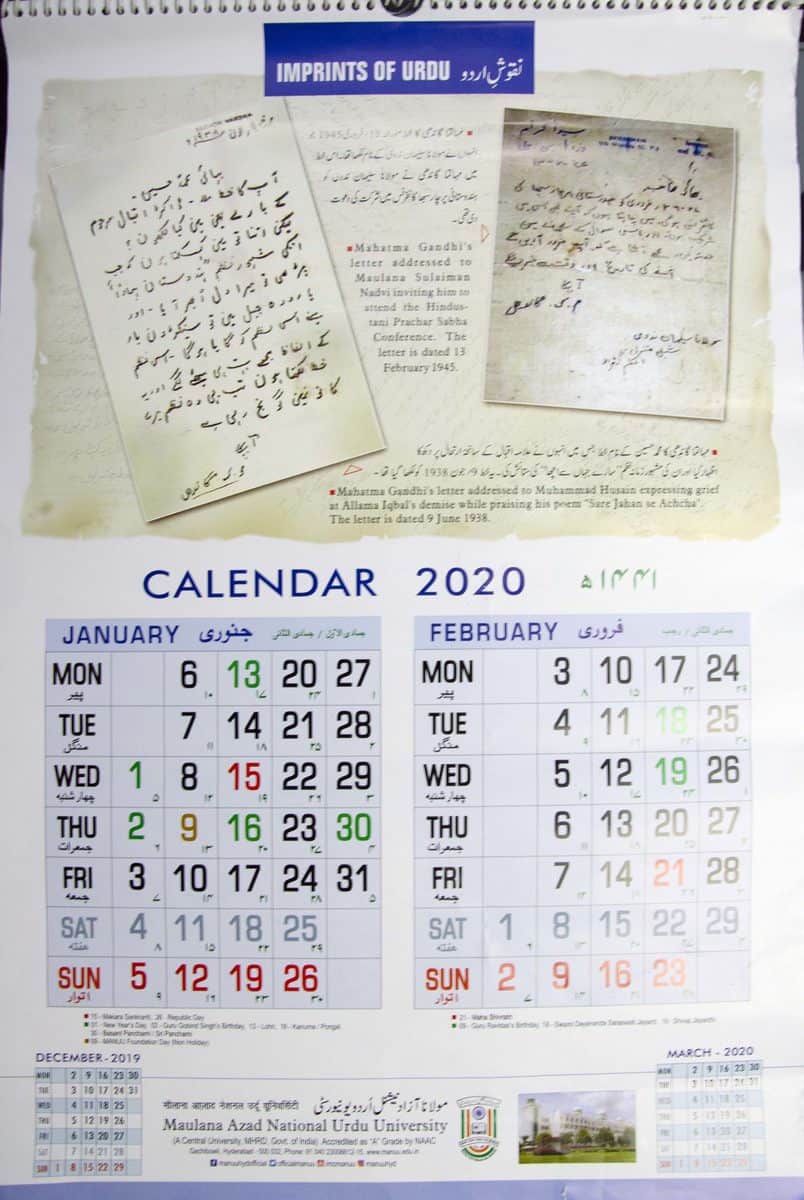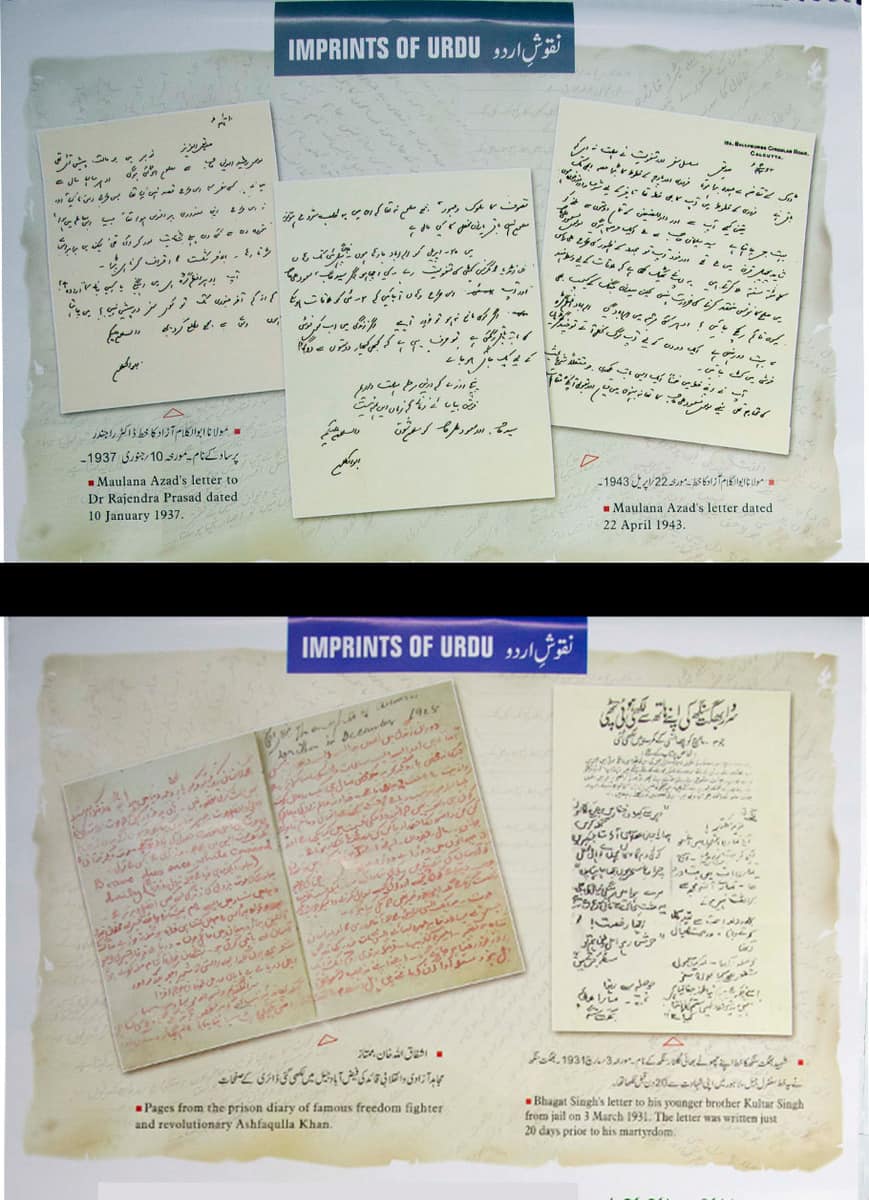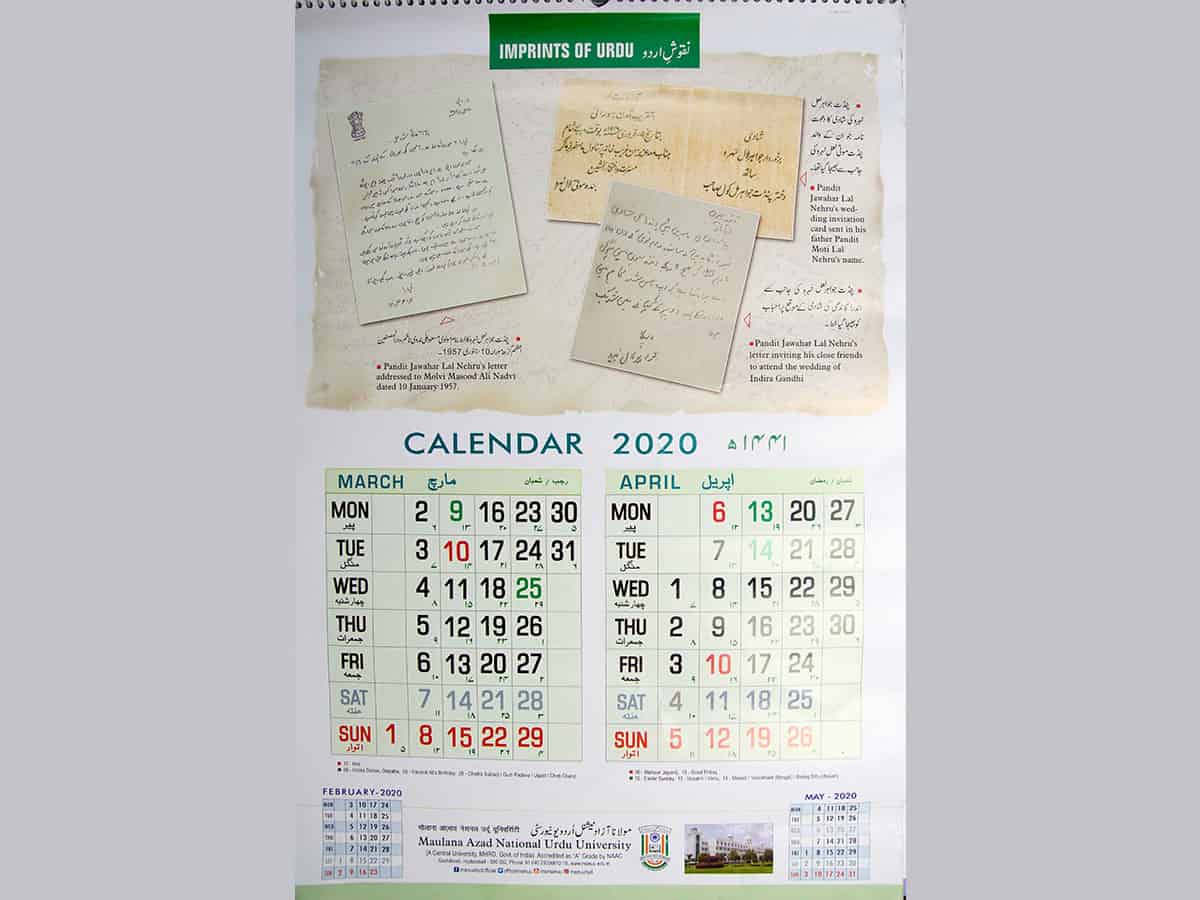Daneesh Majid
Hyderabad: For many, the dawn of the 2020 was an opportunity to celebrate the New Year with grandeur. Although for some, a new year simply means the arrival of a new calendar — usually a boring one from their bank, employer and etc.
Every 12 months, Maulana Azad National Urdu University rings in the year with a uniquely themed calendar.
On the top middle portion of every piece of smooth fine-art paper, which outlives its utility after every two months, are Urdu script and English words side by side.
Alongside the title “Imprints of Urdu” — the current theme — stands its Urdu translation that reads “Nuqoosh-e-Urdu.” On the page containing January and February are images of what might look like decrepit papers festooned with semi-faded text, of a very exotic language. At most, the non-Urdu reader can deduce that that these letters were sent from Wardha in present-day Maharashtra.

The letter on the left starts off as follows in Urdu:
“Bhai Muhammad Husain, ap ka khat mila. Dr. Iqbal marhoom ke baare main yahi kya likhooN? Leken itna tho maiN kah sakta hooN kay jab unki mashhoor nazm ‘Hindustan Humara’ padhi to mera dil ubhra hai (I got your letter, what I can write about the late Dr. Iqbal? I can only say that whenever I listen to his nazm ‘Hindustan Humara’ my heart swells with pride)”
It ends with the signature in Urdu, “Yours, M.K. Gandhi.”
Upon flipping the page, one will find a picture of two epistles in Urdu along with what could pass of a formal invitation to the wedding of a cultured erstwhile aristocrat.
Both these assumptions couldn’t be farther from the truth because that invitation was sent on behalf of Motilal Nehru for the wedding his son who would go onto become India’s first Prime Minister. Below that invitation is Pandit Nehru’s letter inviting close friends to attend his daughter Indira’s marriage.
Scrolling through the other pages, one will find other written correspondences between national icons like Maulana Azad and Rajendra Prasad. Pages from the prison diary of Ashfaqullah Khan and Bhagat Singh’s heart-wrenching letter to his brother 20 days before being hanged are indicative of Urdu’s eloquence.

MANUU PR Officer, Abid Abdul Wasey says, “Through this calendar, we sought to emphasize that Urdu is an awaami zabaan (language of all people) and not of a particular religious community. The writings of the nation’s leading figures which comprise this serve as evidence.”
With this in mind, the university’s PR team released their first calendar back in 2015. Every page in that edition showcases a different variation of the nastaleeq script that has brought to life the corpus of rich Urdu poetry and literature.
Another MANUU PR Team Member and Journalism Assistant Professor Shams Imran is cognizant of the reality that the language is perceived as an exotic relic of the past at elite, cultural settings or a certain community’s mother taught only at madrassas.
He elaborates, “Rather than presenting Urdu as an exotic specimen, we wanted to bring out the overlooked facets of the language.”
Besides the elegant scripts that are no longer in vogue on a quotidian level, the subsequent editions of the PR Team’s brainchild highlights a different aspect of Urdu. After the first offering in 2015, the following year exhibited scientists who changed the world like Al-Haytham, Ibn Sina, and Omar Khayyam.
“We wanted to form our content keeping the whole subcontinent in mind keeping in mind the rich literary and linguistic history before and after 1947.” he adds.
Rather than only highlight the exquisite facets of Urdu’s legacy, along with Imran and Wasey, other team members like Aftab Alam, Dr. Faheemuddin Ahmed, Firoz Alam, Amena Anjum and Athar Siddiqui have also bought out its aesthetic and substantive attributes.
Vice Chancellor Aslam Parvaiz actively encouraged this idea to not only publicise of the University, but the very linguistic means via which the educational institution imparts knowledge.
The promotion of Urdu is very much a part of MANUU’s mandate. And what better way to do than to have people start their years off with Gandhi and Jawaharlal Nehru’s penmanship?
The recent calendar is available on the campus’ Directorate of Translation and Publication counter for Rs. 30.

